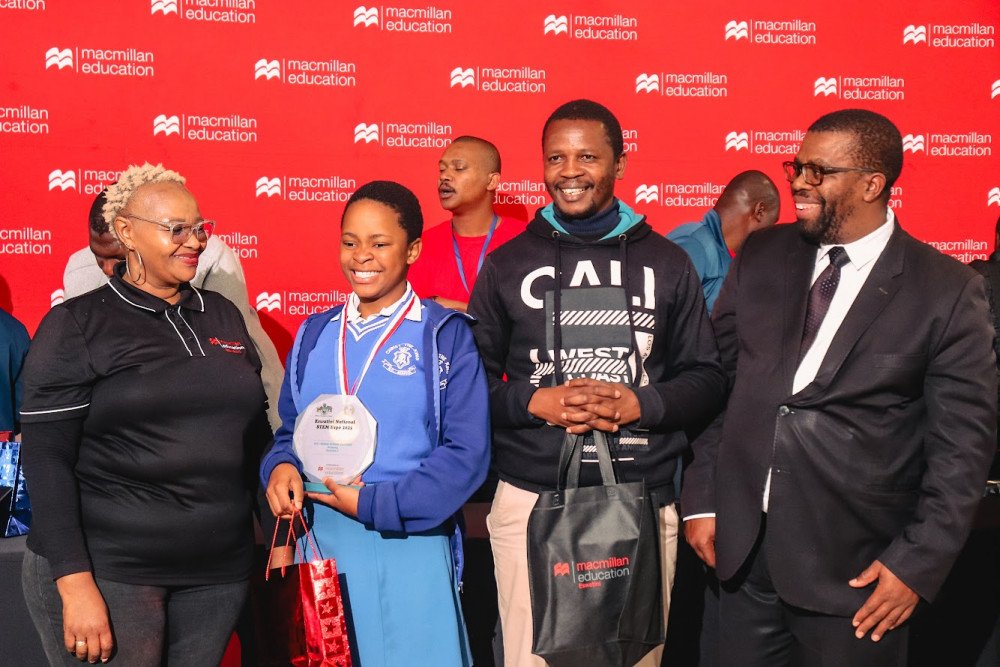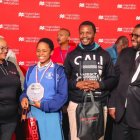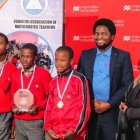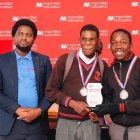The 2025 Eswatini National STEM Expo proudly sponsored by Macmillan Education Eswatini, held at William Pitcher College, was more than just a showcase of scientific talent it was a celebration of learners from every corner of the country, especially those from rural schools who proved that innovation knows no boundaries.
This year’s Expo saw a record-breaking number of participants, with over 5,000 learners engaged at the regional level. The diversity of schools from urban centers to the most remote communities was a powerful indicator of the growing reach and impact of STEM education in Eswatini.
Among the most inspiring stories were those of learners from rural schools who outperformed expectations and claimed top honors in various categories. Machegwini Primary School, nestled in one of the country’s most rural regions, made history when their learners scooped first place in the Lower Primary Problem Solving category. Their project, rooted in practical community challenges, impressed judges with its creativity and clarity.
In the Research Projects category, Nhlangano Central Primary’s Mntambo Owami emerged as a standout, clinching first place with a project that demonstrated both scientific rigor and a deep understanding of local issues. Her work is a shining example of how young minds, when nurtured, can offer solutions to real-world problems.
The brilliance continued at the Junior Secondary level, where Hlatjwako Phumlane and Mngometulu Ceda from Duze High School took first place in Research Projects. Their collaborative effort reflected not only academic excellence but also the power of teamwork and mentorship in rural education.
At the Senior Secondary level, the Engineering category was dominated by learners from deeply rural schools. Mabila Lindelwa and Nhlabatsi Khayalethu of Shewula High School secured first place, while Masika Boyboy and Lukhele Buhle from Mshengu High School earned second place. These achievements underscore the growing technical capacity and innovative spirit thriving in Eswatini’s rural education system.
While urban schools still benefit from greater access to resources and mentorship, the gap is narrowing. Rural schools demonstrated remarkable improvements in project execution, user interface design, and documentation. Their projects often focused on community-centered solutions such as farming technologies, water purification, and local commerce systems highlighting a strong connection between STEM learning and real-life application.
Girls also made a strong showing, comprising nearly 48% of all participants. Their presence was especially felt in research and software development categories, though efforts must continue to ensure equal representation across all technical fields.
The Expo’s interdisciplinary quiz competition added a dynamic element, with mixed-gender teams from all school levels showcasing their knowledge in Science, Mathematics, ICT, and Design & Technology.
As the curtain falls on the 2025 STEM Expo, one thing is clear: Eswatini’s learners are rising, and they are doing so from every region, every background, and every school. With continued support, mentorship, and investment especially in rural areas the future of STEM in Eswatini is not just bright, it is brilliantly inclusive.






